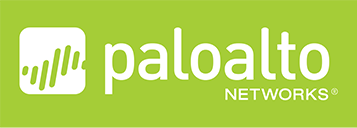Managing your application traffic is no longer as easy as it once was. The advancing digital age has meant that it’s harder and harder to properly identify users and applications. To combat this threat and to prevent risks, many people are now turning to App-ID, which comes native within the Palo Alto Networks Next-Generation Firewalls.
Instead of a port-and-protocol based policy, this application-based approach allows you to better identify threats and defend against cyberattacks. The App-ID is able to apply numerous classification mechanisms to the network stream in order to accurately identify certain applications.
Better yet, it can do so regardless of any of the port and protocol evasive tactics they may be deploying. If you’re interested in better securing against this rising threat, you might want to consider implementing App-ID on your own Palo Alto Network Next-Generation Firewall. In fact, here are four key reasons why you should do exactly that.
1. Access a broader spectrum of application visibility
You will quickly gain unprecedented access to all of the applications that are running on your network. You can see how much those applications are being used and see which purpose they are being used for. This insight is invaluable in identifying which are the top applications being used by your organisation, and what the threats facing you are.
Best of all, this information is presented in an easy to understand manner. Meaning you can share these findings with business leaders in your company and block unwanted applications much faster.
2. Reduce the surface area of any attacks
App-ID allows you to exert very specific control over all applications running on your network. You can decide which applications can be used, and then tightly control others. Or, simply block them altogether. This greatly reduces the surface area risk of any attack. For example, you can allow instant messaging applications to run through the network but are able to block them from sending any files. Thus eliminating the risk of any malicious files being sent.
3. Protect sensitive data and secure SaaS traffic
SaaS applications have been increasingly popular in organisations as they can help speed up a wide variety of daily tasks. However, this has caused problems, such as the fact that any sensitive data that is hosted is being managed by the provider of the SaaS. Well, the classification capabilities of App-ID allow you to access detailed usage reports on SaaS applications. This includes information about who is using them; any malicious files that have been sent to the applications; also, the top 10 threats those applications have introduced.
4. Secure your data centre
Properly utilising App-ID will allow you to make more informed data center policy decisions. Your IT department will have greater control over the traffic being sent as they can see exactly which applications are running. Your team can create a solid list of applications which are actually safe to run in the data centre and block the rest. If for some reason an unwanted user gains access to your data centre, the IT team can stop them from extracting sensitive data by limiting the application usage.
At Consilium, we provide IT support in Glasgow and we are passionate about helping local businesses to protect against growing cyber threats. That’s why, in collaboration with Palo Alto Networks, we are currently running a free Security Lifecycle Review. This will allow you to identify any risks you currently face and pre-empt any cybersecurity attacks.
To take this pre-emptive step and be proactive in protecting your data centre apply for your free audit by getting in Contact with us today.









